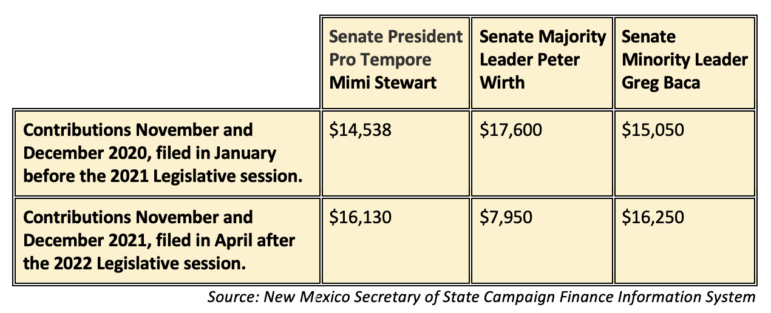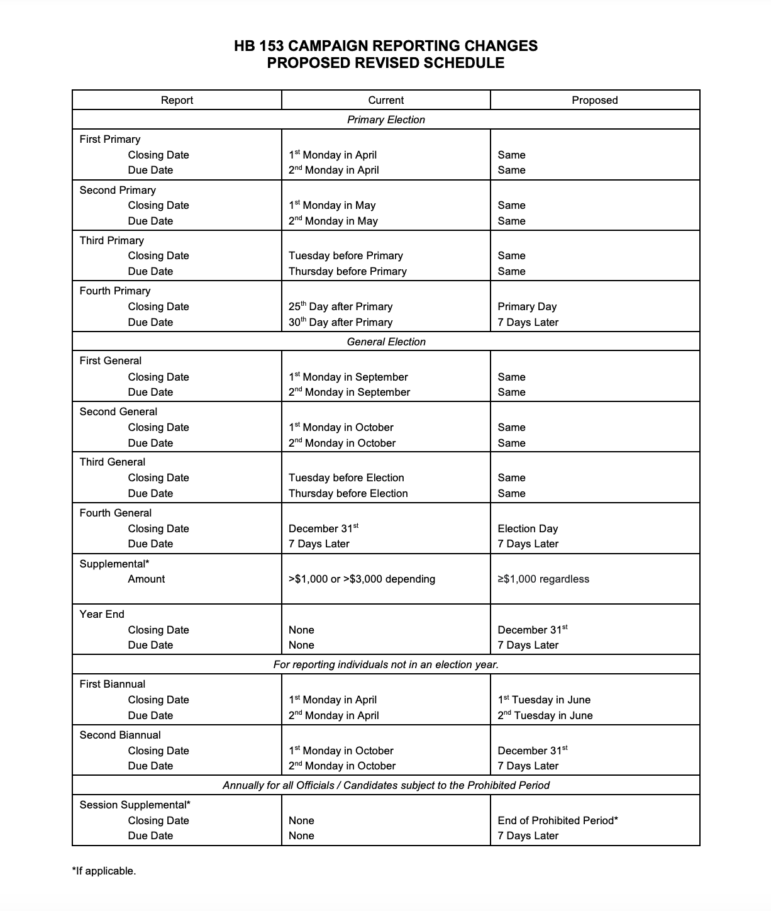In the final week of the 2022 general election, almost $350 thousand dollars went to candidates that wasn’t reported until this month when the election was long over.
That’s because smaller cash contributions in the final days of a New Mexico general election aren’t reported under New Mexico law until two months later when “no one cares because we’re off to other things,” said Rep. Matthew McQueen, D-Galisteo, who with Sen. Bill Tallman, D-Albuquerque, is sponsoring a bill that would speed up the reporting cycle.
Under their bill, the campaign reporting period would end on election day, for both the primary and general elections, and a report would be due a week later.
“Lawmakers should file their reports when the public is paying attention,” McQueen told members of the House Government, Elections and Indian Affairs Committee Friday morning.
The legislation cleared the committee on a 7 to 2 vote. It now heads to the House Judiciary Committee.
House bill 103 makes several other changes, as well, that would lead to more timely disclosure of money collected by certain public officials.
It speeds up the timeline for reporting money contributed during legislative sessions.
Currently, certain elected officials are prohibited from soliciting donations from Jan. 1 through the end of the legislative session when they’re making or changing laws. But they can accept unsolicited donations during that period, which aren’t disclosed publicly until April, well after the session ends. Under the bill, the deadline for reporting that money would come within a week of the session’s end. “This will make it clear exactly when those donations arrive,” said McQueen.
The new rules would also shift two annual reports filed by public officials who are already in office to June and early January, from the current due dates in April and October. The January report would capture all money contributed in November and December, the months just before the annual legislative session kicks off.
The change would give the public a picture of what money is coming in right before the session, McQueen said at the committee hearing. Under current law, the only time someone must report that money in January is if they ran for office in the previous year, which McQueen noted excluded state senators this year.
New Mexico In Depth took a look at how much money would be reported earlier rather than later, should the bill become law this year.
Contributions in the final week of an election
The roughly $350 thousand given to candidates in early November just before the general election but not reported until this month included donations made on election day, and smaller amounts that didn’t meet thresholds for when candidates must report money in the final election week. About 60% of the cash went to gubernatorial candidates Michelle Lujan Grisham, a Democrat, and Republican Mark Ronchetti.
House Bill 103 would require reporting of all that money a week after the election. The change would apply to both primary and general election cycles.
Changing non-election year reporting dates
This year, state representatives filed their final election reports in early January. Those reports include all of the donations they received in the final week of the 2022 election through December 31. So the public can see who gave these lawmakers money before the legislative session began.
Not so with state senators.
No state senators filed reports in early January because they weren’t candidates in the 2022 election cycle. So the public has no way of knowing how much money they received in November and December from corporations or other special interest groups who may be seeking to influence the outcome of legislation in the upcoming session. Those donations won’t be reported until April, when the next round of reports by public officials are due.
To understand the amount of money senators may have collected but weren’t required to disclose this January, New Mexico In Depth looked up donations to Senate Pro Tem Mimi Stewart and Senate Majority Leader Peter Wirth, both Democrats, and Republican Senate Minority Leader Greg Baca reported in November and December of 2020 and 2021.

The donations came almost exclusively from corporations, trade and advocacy organizations, many but not all of whom employ registered lobbyists.
A lobbyist for the State Ethics Commission, Deborah Condit, told committee members that requiring all public officials to report their contributions in January addresses a gap under current law that leaves in the dark the money contributed by non-lobbyists just before the Legislature convenes.
“It’s the sort of information important for people to have in advance of the session,” said Sen. Katy Duhigg, D-Albuquerque, chair of the Senate Rules Committee, which will likely be the bill’s first stop in the Senate.
“The more we can get timely information available to the public and to folks who are going to be up here interacting with us in session, the better,” said Duhigg in an interview.
Accepting money while in the midst of making laws
Lawmakers and statewide public office holders are prohibited from soliciting contributions from Jan. 1 through the end of the session. The prohibition on soliciting by the governor and lieutenant governor extends for an additional 20 days.
But there are no laws against accepting unsolicited donations. The donations accepted during the session are included in the next regular report, filed in April well past the end of the session.
New Mexico In Depth found in 2022 that $51,400 was given to lawmakers, primarily those in leadership positions. Notably, Mescalero Apache Tribe gave almost $27,000 to a handful of lawmakers in January. Gov. Michelle Lujan Grisham did not register any contributions during the period. House bill 103 would allow the public to learn about these sorts of contributions much earlier by requiring a report one week after the session ends.
Handling the workload
At this morning’s committee hearing, the bill elicited concerns from Republicans, primarily because of extra workload for lawmakers, some of whom have other jobs.
“It just makes it that much more work on the candidates that are running and especially the ones that have a job, that have to take off from work to go take in that report,” said Rep. Martin Zamora, R-Clovis. “…it makes it harder on candidates. So I’m all for the transparency but I also like to keep it simple.”
Zamora voted for the bill, but his two Republican counterparts voted against it.
Rep. John Block, R-Alamogordo, said extra work makes it harder for working class New Mexicans to run for office, and “enshrines more of a club” in Santa Fe. Block also said candidates are exhausted after election day and make plans to go on vacation directly after.
“I nearly killed myself in that primary to win,” said Block of his win last June. After that, he didn’t want to do any more work, he said.
Rep. Bill Rehm, R-Albuqueruqe, agreed, saying many go on vacation after the election and that it didn’t really matter whether the money was made public earlier because nothing could be changed anyway.
But the chair of the committee, D. Wonda Johnson, D-Rehoboth, said it was important for candidates to keep good and clean books. “This is part of that process,” she said. “We should be cognizant of making time and prepare our books.”

